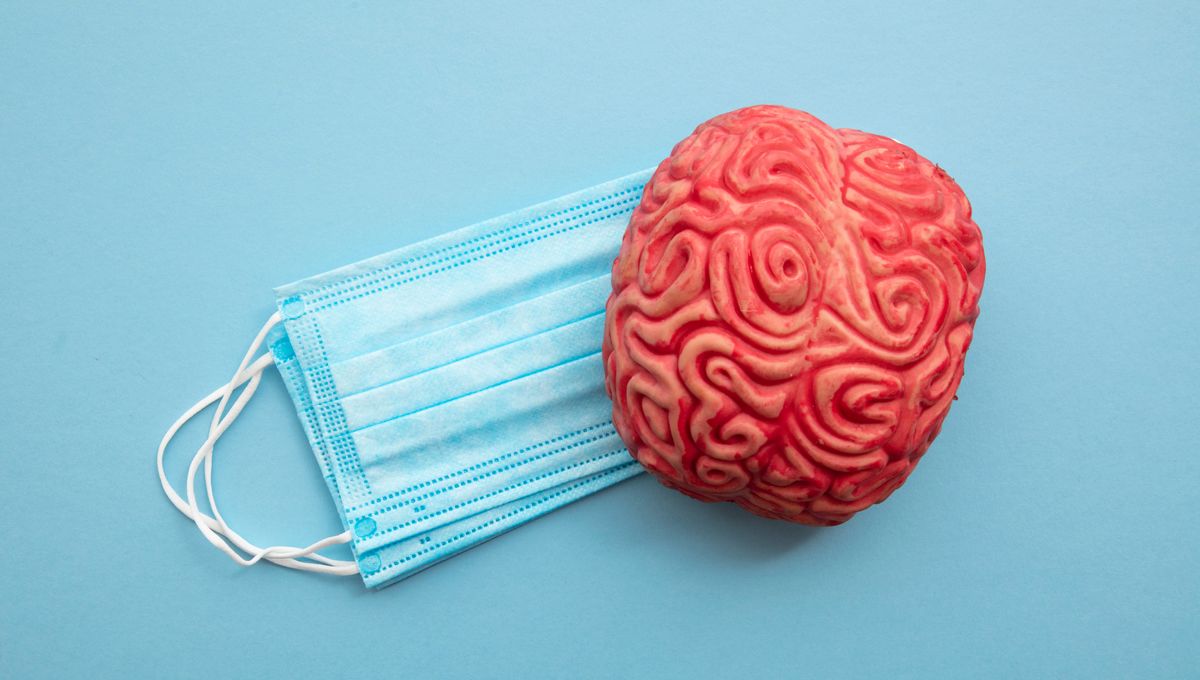
People who have been hospitalized with severe COVID-19 infection can exhibit brain changes that cause the equivalent of 20 years’ worth of aging, significantly impacting their cognition. The findings of a new study, the largest of its kind in the UK to date, show how neurological complications can persist in these patients long after their respiratory symptoms have resolved.
While many people who catch COVID will only have cold- and flu-like symptoms, we’ve known for some time now that the SARS-CoV-2 virus has the potential to affect multiple systems within the body – and the brain is not off-limits. In long COVID patients, symptoms like brain fog are among the most commonly reported.
But there’s still a lack of comprehensive research on how COVID-19 can cause cognitive issues and how best to manage this. To address some of these questions, scientists at the University of Liverpool and King’s College London jointly launched the COVID-19 Clinical Neuroscience Study (COVID-CNS).
“After hospitalisation with COVID-19 many people report ongoing cognitive symptoms often termed ‘brain fog’,” said study author Dr Greta Wood from the University of Liverpool in a statement. “However, it has been unclear as to whether there is objective evidence of cognitive impairment and, if so, is there any biological evidence of brain injury; and most importantly if patients recover over time.”
The team’s latest results come from 351 people with a history of hospitalization with severe COVID-19, who were compared to almost 3,000 control participants matched in a range of factors, including age and sex.
“We found that both those with and without acute neurological complications of COVID-19 had worse cognition than would be expected for their age, sex and level of education, based on 3,000 control subjects,” said Dr Wood. The patients’ cognitive abilities were found to be at a level that would be expected for someone 20 years older. This was true even in those participants who had no neurological symptoms when they first had COVID.
When they underwent magnetic resonance imaging (MRI) scans 12-18 months after being in hospital with COVID, the patients were found to have reduced gray matter in some parts of their brains and elevated levels of proteins associated with brain injury.
“These findings indicate that hospitalisation with COVID-19 can lead to global, objectively measurable cognitive deficits that can be identified even 12-18 months after hospitalisation,” said corresponding author Professor Benedict Michael.
“The association with brain cell injury biomarkers in blood and reduced volume of brain regions on MRI indicates that there may be measurable biological mechanisms underpinning this.” The next step is to figure out what these underlying mechanisms might be, and whether similar things could be at play with other infections, not just COVID.
It’s important to remember that the COVID-CNS cohort are all patients who experienced severe COVID-19, so it’s not clear how generalizable these results are to those who have only had comparatively mild infections. But Professor Gerome Breen of King’s College London explained how advancing this research could have benefits for many of those people too:
“Significantly our work can help guide the development of both similar studies in those with Long-COVID who often have much milder respiratory symptoms and also report cognitive symptoms such as ‘brain fog’ and also to develop therapeutic strategies.”
The study is published in Nature Medicine.
Source Link: Brain Deficits After Severe COVID-19 Can Equate To 20 Years Of Normal Aging